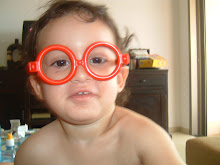מתוך "בונים חברים" מאת טומי אונגרר בהוצאת מודן
דבר העורכת
ספרו החדש של טומי אונגרר ‘בּוֹנִים חֲבֵרִים׳ מ-2007 הוא יצירה אקטואלית בעלת מסרים חברתיים ואקולוגיים אוניברסליים וביקורת חברתית מתובלת בהומור, המצביעה במילים פשוטות ובשפע איורים צבעוניים על האפשרות לתקן את העולם. הנימה האופטימית, הנאיבית משהו, לא נגררת להטפה צדקנית ומצליחה לייצג גישה של הליכה נגד הזרם, בהציגה אופציה למציאות חברתית ואקולוגית בעייתית המאיימת על עצם קיומה של החברה האנושית.
אונגרר, אמן ומאייר עכשווי שנון, שסגנון איוריו ברוח הפופ והעיצוב הדינמי של התרחשויות בסצנות כמו–קולנועיות השפיעו על מאיירים רבים, מפגיש את הילדים, גיבורי הספר, רפי במוקו וקי סינג, בשכונת מגורים פשוטה ודלה, שבה מתגוררים מהגרים ובני–מיעוטים אתניים ממסורות שונות. המפגש מתרחש על רקע החלטתו האמיצה של רפי, כל–ילד בודד ממוצא אפריקאי בשכונה החדשה שאליה עבר, לבנות לו חברים מגרוטאות שמצא בחצר ביתו. בעקבות היצירה העצמית של חברים אלה נרקמת גם חברות אנושית כאשר קי, שכנתו, ילדה ממוצא אסייתי, מצטרפת אליו כשותפה מלאה ליצירה. בין הילדים, שוררת אחווה אמיתית נטולת חיכוכים, תחרות או מלחמות–אגו, וכעבור זמן לא רב משפחותיהם מתיידדות ללא כל תחושת זרות. אט אט היצירות מתרבות וסוחפות את כל ילדי השכונה. מעגל החברות האנושית מתרחב, והבדלי המוצא והרקע הסוציו–אקונומי נזנחים כשילדי השכונה כולה הופכים שותפים לתהליך היצירתי. גם המבוגרים נסחפים בהתלהבות מעשה היצירה, בהרשותם לילדים למחזר את מה שנזרק והפך גרוטאה.
אונגרר מצביע על הילדים כעל תקוותה החדשה של האנושות, והוא כמובן איננו הראשון בכך. הילדים, נטולי התניות אפלייתיות, מלאי יוזמה ואומץ לשנות, לשפר ולהשפיע על סביבתם ועל חייהם שלהם, תוך שימוש בכל מה שנתפס כמיותר ומכוער. אונגרר אינו נמנע מביקורת עוקצנית על החברה הוותיקה, המבוססת, הנאלצת לקלוט מהגרים בעל כורחה אך נגועה בשנאת זרים. בשיאה של תנופת היצירה, מאייר אונגרר בירכתי אחד האיורים את דמותם הטיפוסית של שני מבוגרים עבי–בשר, האחד מהם נראה כשודד, השחים בבוז: “תראה את הזרים האלה, אפילו את הזבל הם לוקחים לנו.“ הוא גם אינו חוסך מאיתנו את דעתו עליהם, בציירו חור עצום הנפער בקודקוד ראשם החלול... ראש חלול של אנשים החושבים שזלזול ושנאה עשויים להוות פתרון
Editor's note
Tomi Ungerer's 2007 book, "Neue Freunde," is a contemporary piece with universal, ecological and social messages as well as social criticism seasoned with humor, pointing to the possibility of improving the world using simple words and exuberantly colorful illustrations. The optimistic, somewhat na?ve tone doesn't lend itself to over-righteous indoctrination and succeeds in presenting a non-conformist approach by providing an alternative for a socially and ecologically problematic reality which threatens the very existence of humankind.
Ungerer, a brilliant contemporary artist and illustrator, whose illustration style draws on pop and whose dynamic design of cinematic-like scenarios have influenced many illustrators, brings together Raffi Bamoko and Ki Sing, the book's characters, in a poor and dull neighborhood, whose residents are immigrants and ethnic minorities of various traditions. The encounter happens after Raffi, an all-African boy who feels lonely in the new neighborhood he's move to, bravely decides to make friends for himself out of the junk he finds in his back yard. Once he self-creates these new friends, he also befriends another human named Ki, the Asian girl next door, who joins him as a full creative partner. The children share true friendship devoid of any strife, competition or ego-conflicts, and their families soon forgo their differences in favor of friendship. Bit by bit, the creations multiply and enchant all the neighborhood kids. The circle of human friendship expands, and the differences in origin and socio-economic status are forgotten when the neighborhood kids become partners in the creative process. The adults are also carried away by the joy of creation by letting the children recyclewhat has been tossed away as junk.
Ungerer points to the children as the new hope for humanity, and of course, he is not the first one to have do so. The children, devoid of any discriminatory conditioning, are full of initiative and the courage to change, improve and influence their environment and their lives, while using all that is perceived as ugly and useless. Ungerer does not spare his biting criticism of the established, veteran society that is forced to absorb immigrants but is infected with xenophobia. At the height of their creative impetus, Ungerer draws at the bottom of one of his illustrations, the typical image of two stocky adults, one of them looking like a pirate, as they scornfully mutter: "Look at these foreigners; they are stealing our garbage too." He doesn't spare us his opinion of them, when he draws a huge hole gaping at the crown of their hollow heads…the hollow heads of people who think that disparagement and hatred are an apt solution.
~~~


אין תגובות:
הוסף רשומת תגובה